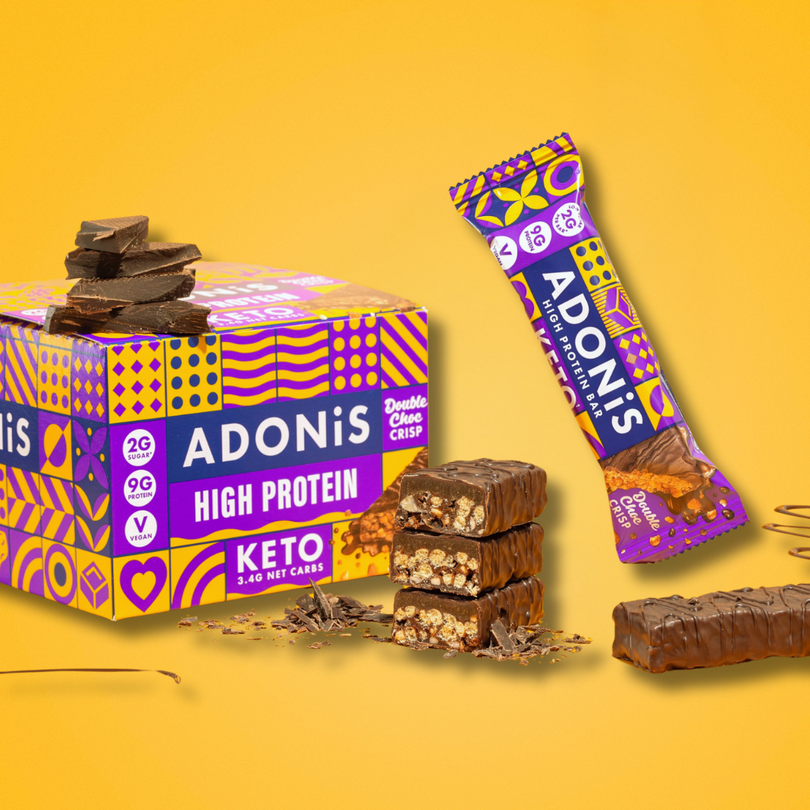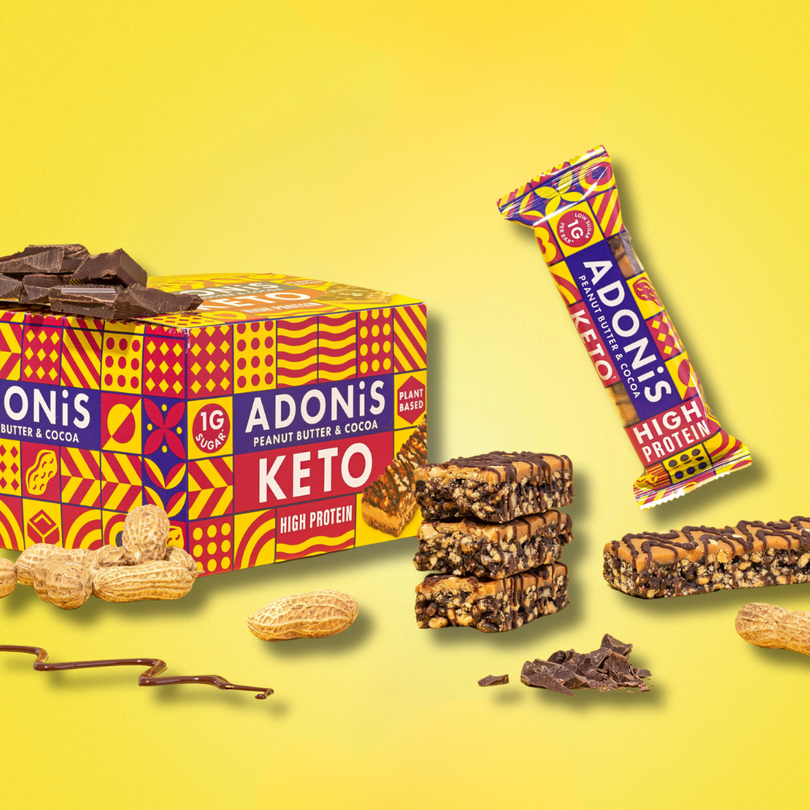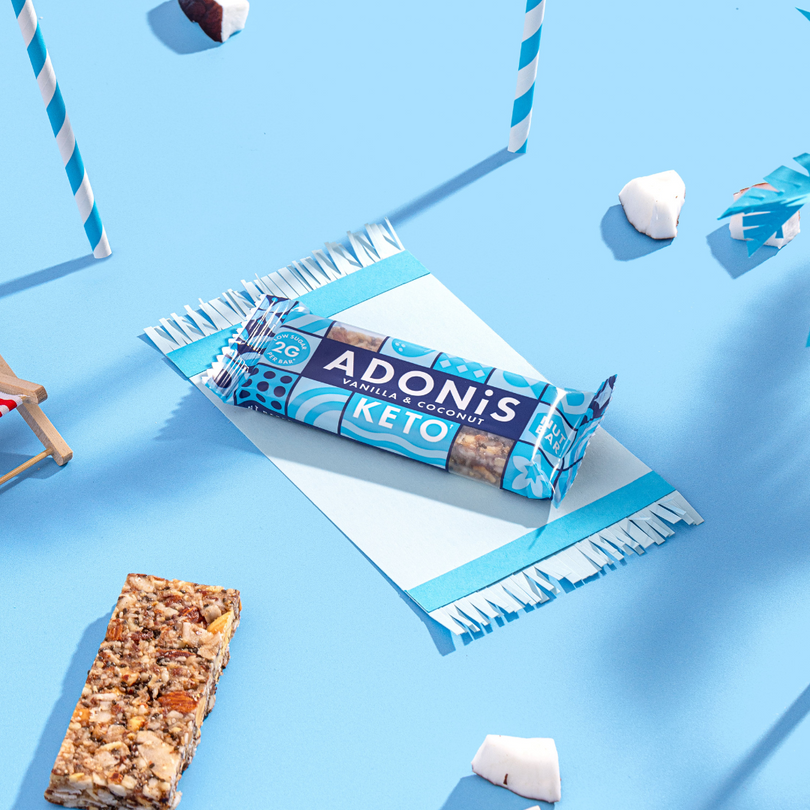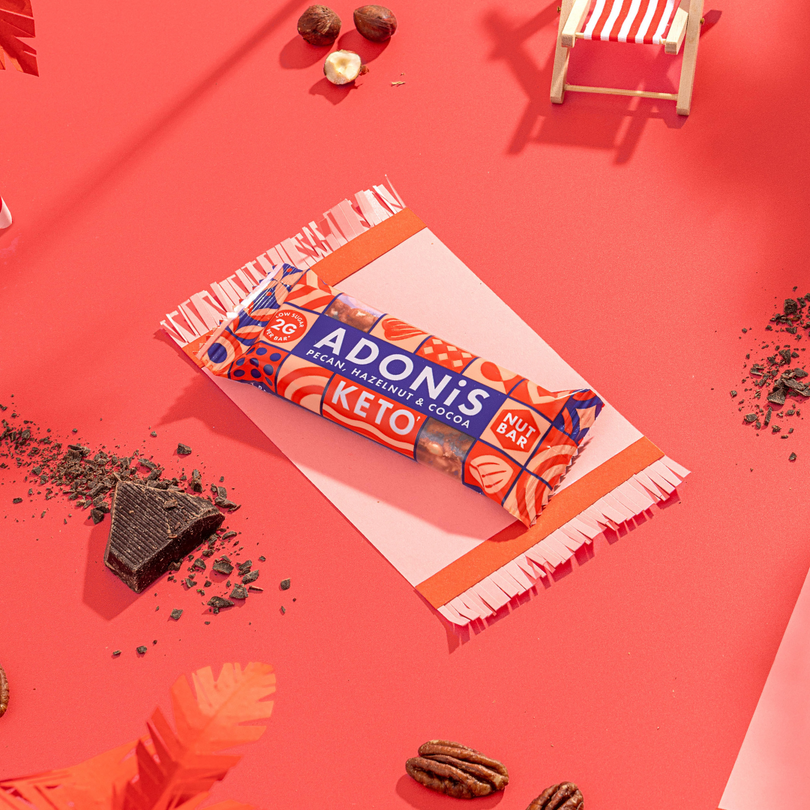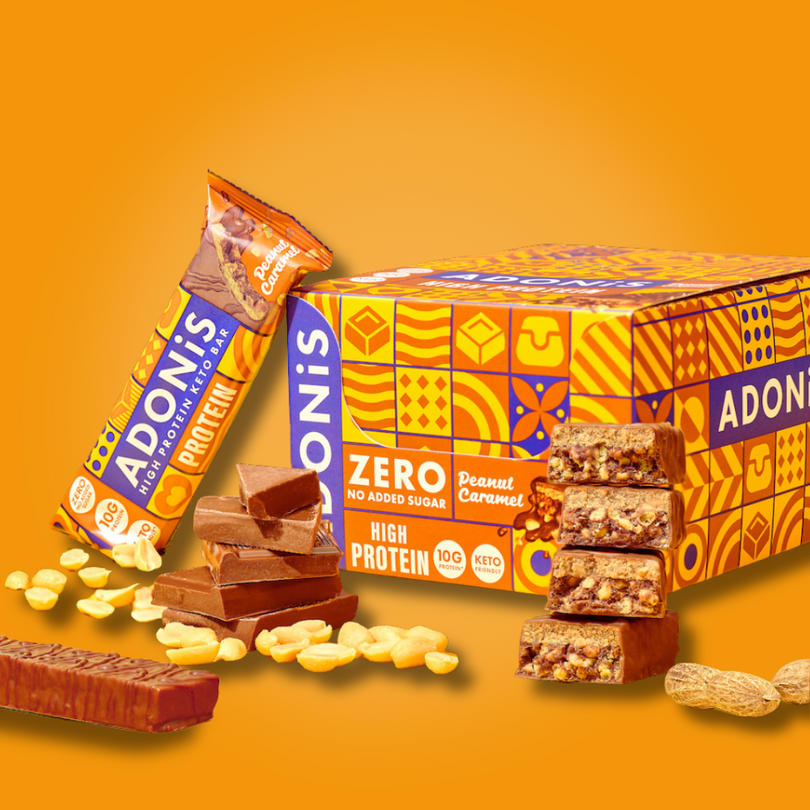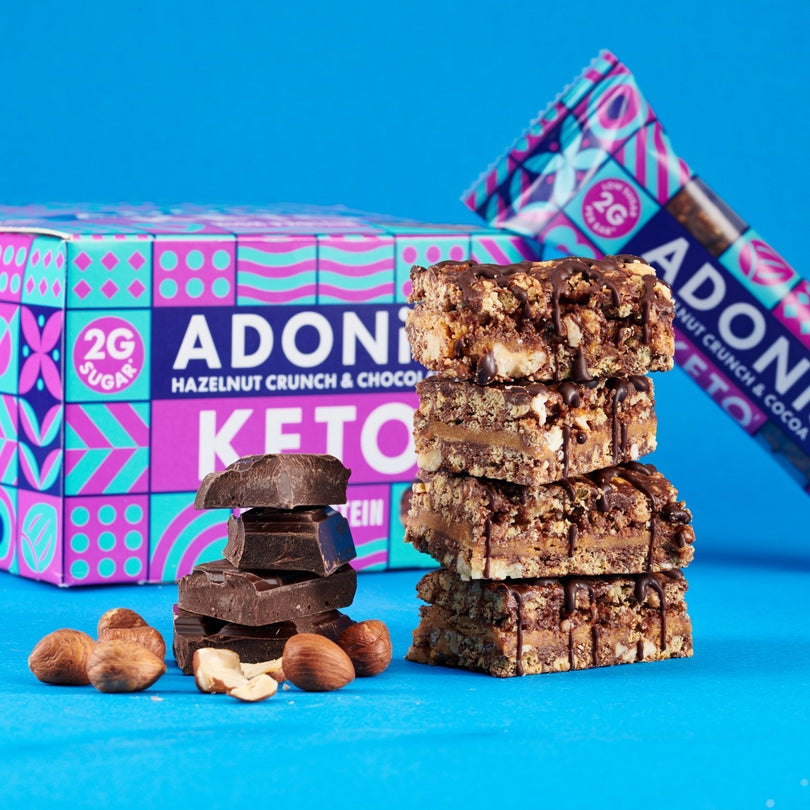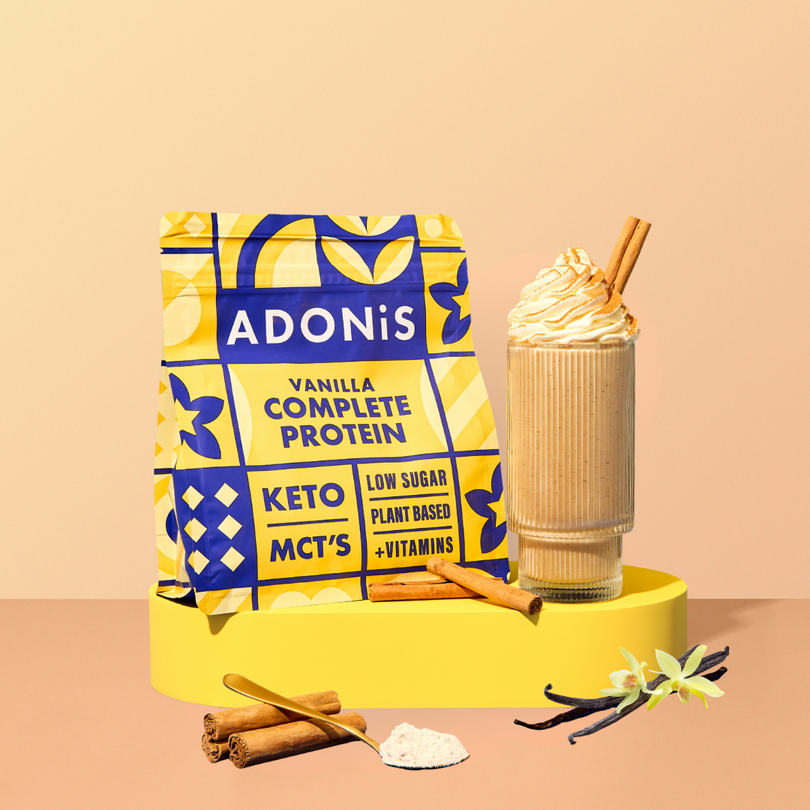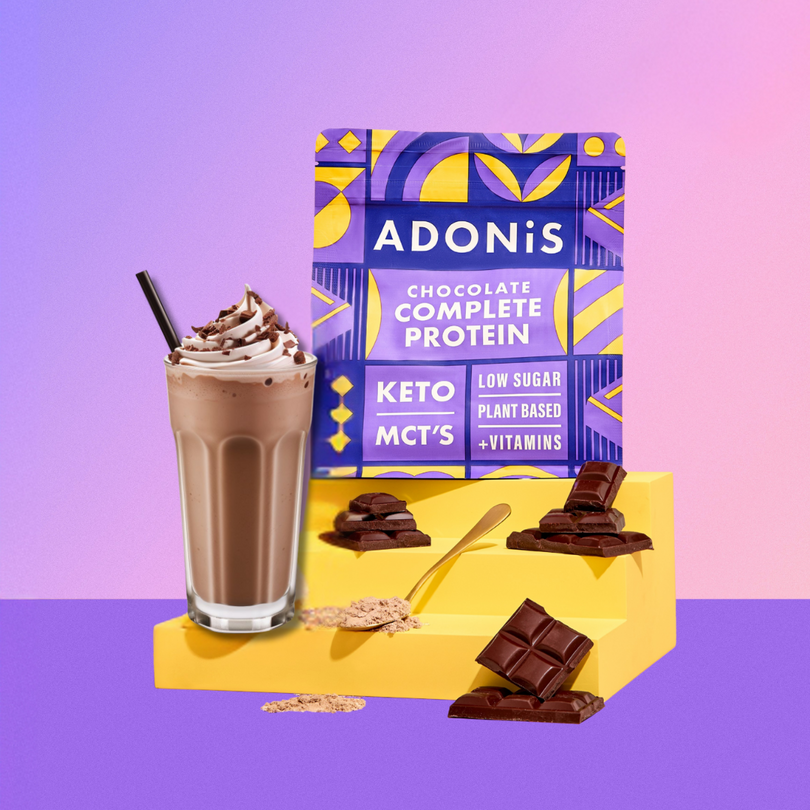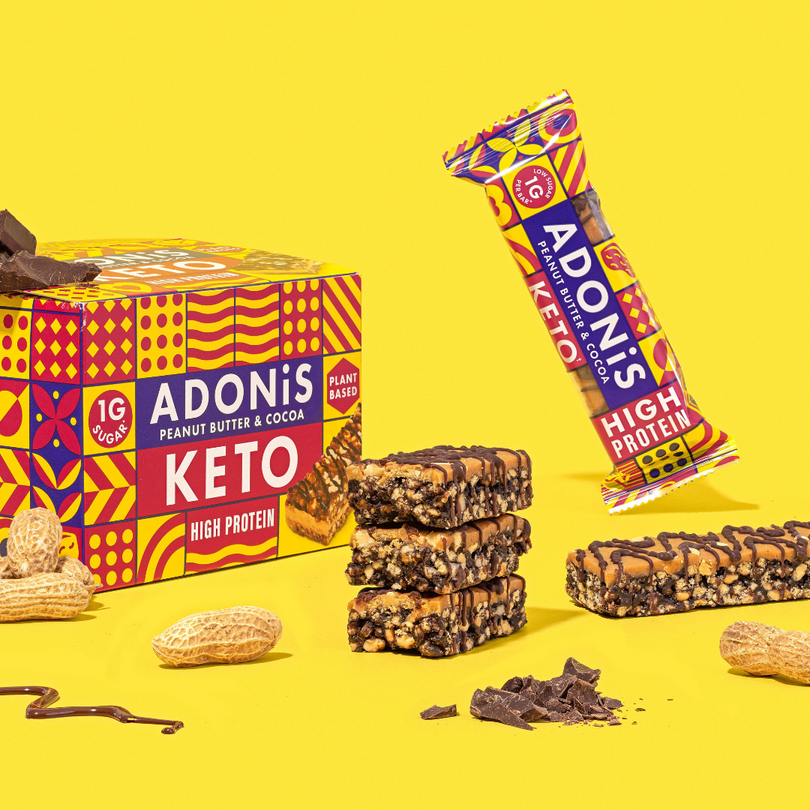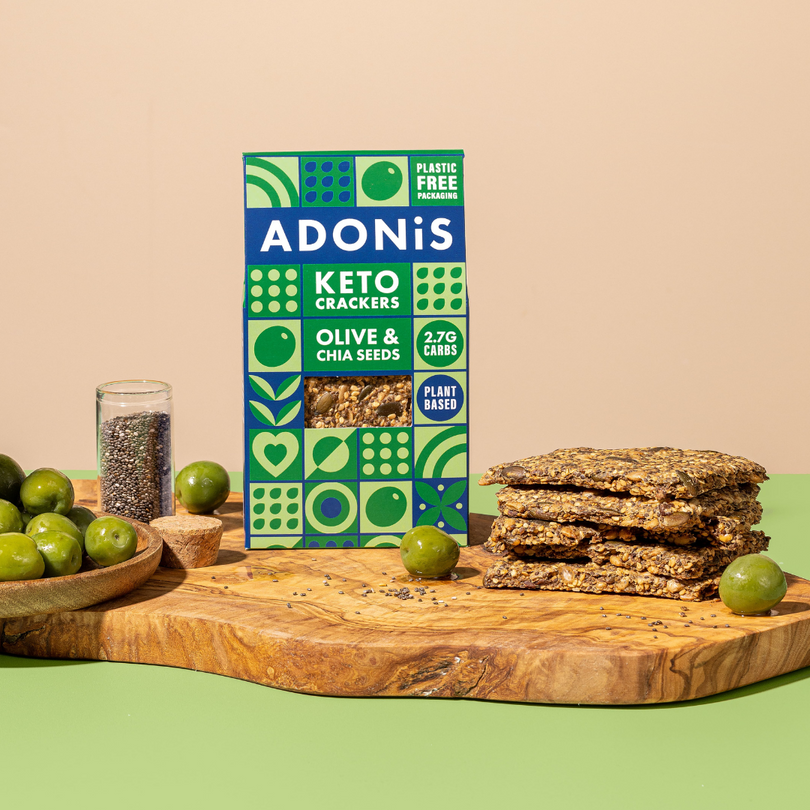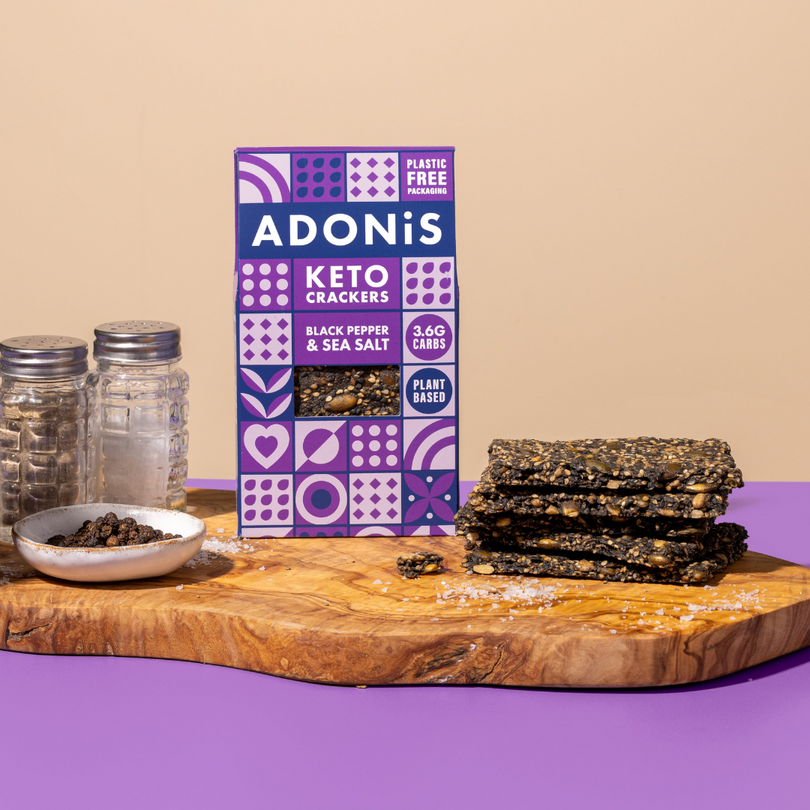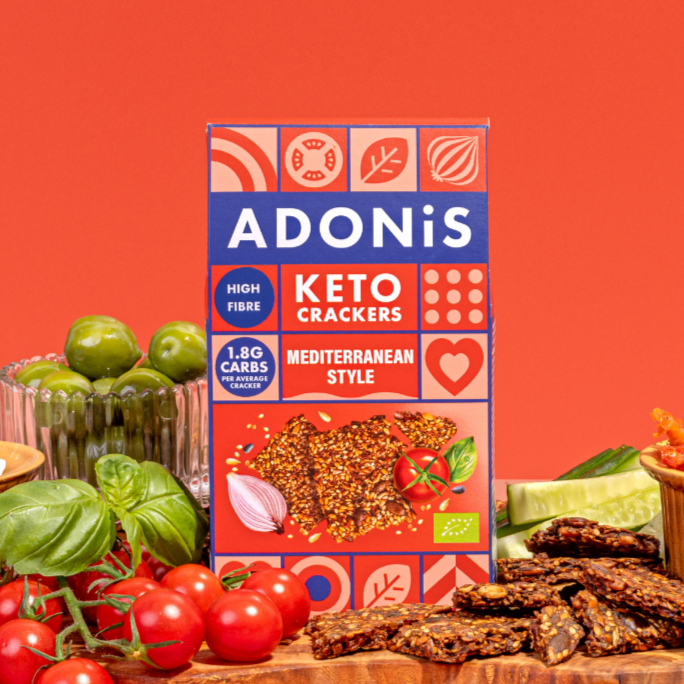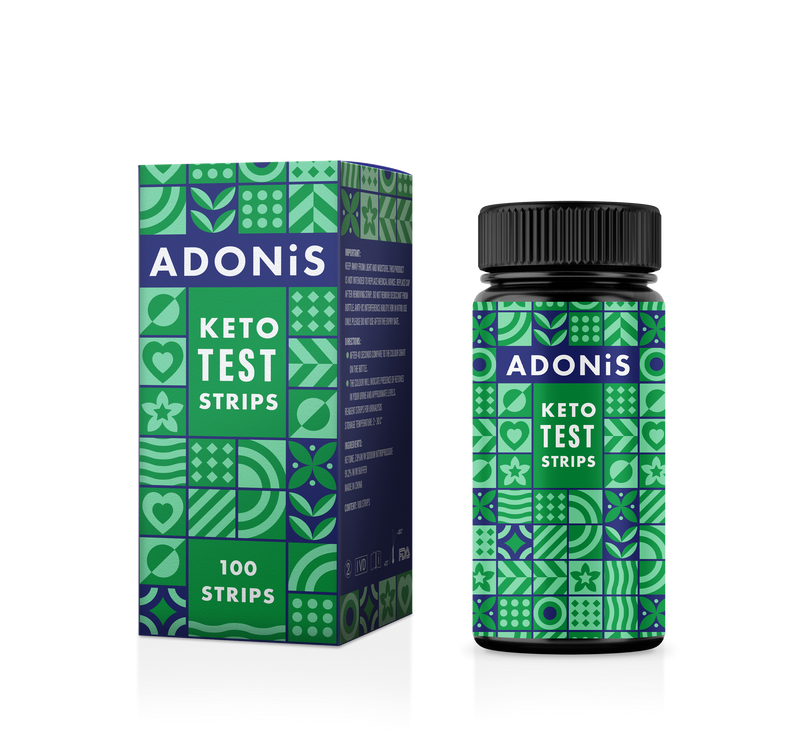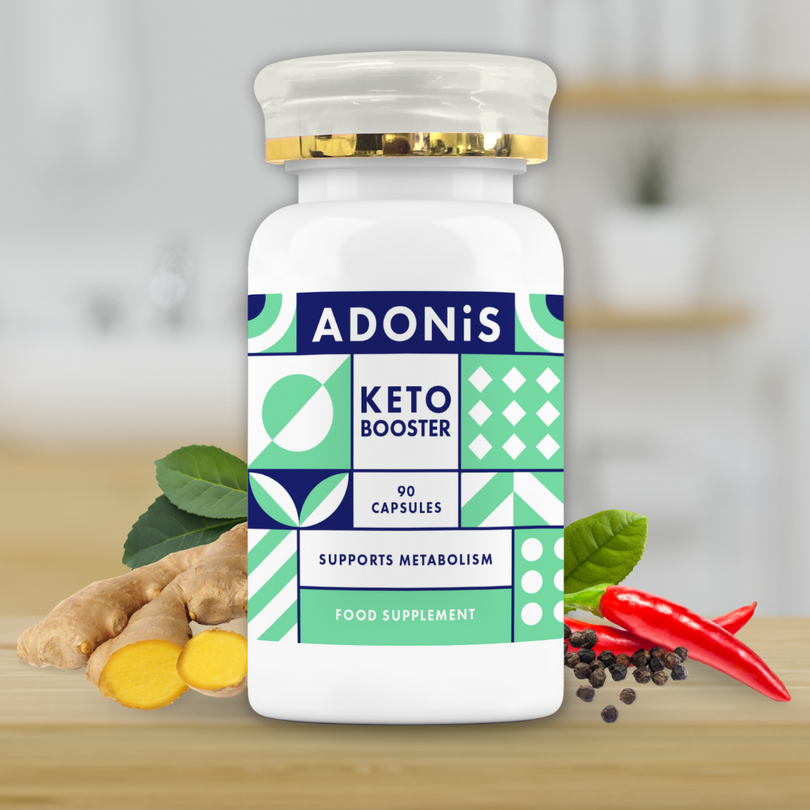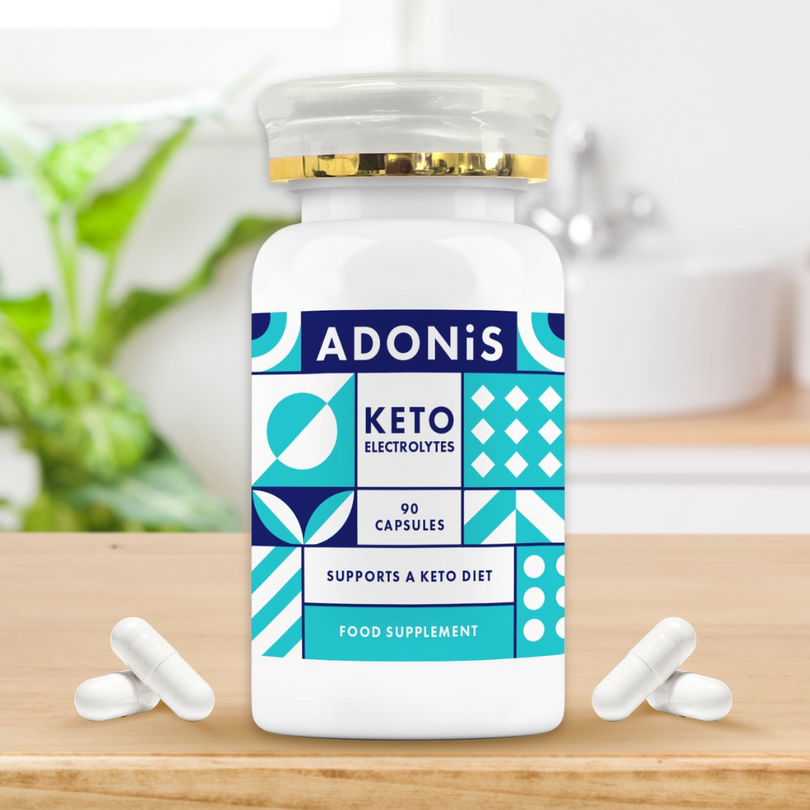VEGAN SUPPLEMENTS 101
9 min read
The Best Supplements for Keto
Keto is an effective diet for both weight loss and improved overall health.
Taking the right keto supplements for your body and lifestyle could help you to lose weight whilst ensuring you still get all the essential nutrients. And from exercise newbies to elite athletes, some supplements will even support you to achieve your fitness goals more easily.
Here we will look at the best supplements to support a healthy keto diet.
Why do I need Supplements on Keto?
Keto is growing in popularity, and with good reason. Following keto can lead to rapid weight loss and reduced feelings of hunger, helping you to achieve your weight loss and health goals.
However, taking care of your macros and micros whilst eating keto-friendly foods is a balancing act. Adding keto supplements to your diet is a simple way to get all the nutrients you need whilst keeping your body in that all-important state of ketosis. Moreover, some supplements can actually make it easier to stick to keto by combatting any side effects of the diet.
Add Nutrition to your Keto Diet
It can take some time to adjust to the high fat, moderate protein and low carbohydrate keto diet. As many fruits and vegetables are high in carbohydrate, you may find yourself eating far less of these food groups.
Although fruit and veg is packed with nutrients, eating moderate amounts will prevent you from reaching ketosis. This is where keto supplements come in. Rather than risk interruption of ketosis, you can consume natural essential vitamins and nutrients by taking keto-friendly supplements.
Minimise Keto Flu
When first starting keto, it is common to experience ‘keto flu’. A review in 2020 found that 44.6% of participants experienced flu-like symptoms when starting keto. Other symptoms included headache (24.8%), fatigue (17.8%) and nausea (15.8%).
Although the researchers found that these symptoms resolved within an average of 4.5 days, for some people keto flu lasted up to 30 days. Taking keto supplements can help to minimise symptoms of keto flu, giving you a better chance of succeeding with the diet.
Choosing Effective Keto Supplements
Keto supplements should offer important nutritional benefits such as essential fatty acids or vitamins, whilst ensuring that you remain in a state of ketosis.
With a smorgasbord of keto supplements available, it’s important to understand how each supplement works. Understanding the science will help you choose a supplement combination that will support you in reaching your health or fitness goals faster and more easily.
Here we will look at the benefits of the most popular keto supplements.
1. MCT Oil to Increase Ketosis
MCT oil is a type of fat made up of medium chain triglycerides (MCTs). Dietary supplementation with MCT oil is popular with keto dieters as it helps the body remain in a state of ketosis. Remaining in ketosis is essential for continuous effective fat burning and prevention of new fat storage.
The body can utilise medium chain triglycerides more quickly than many other types of fat in our diet. Once consumed, MCTs are absorbed by the liver and rapidly converted to ketones. The ketones are then immediately released into the body helping you to maintain a steady state of ketosis for continuous fat burning.
MCTs are also a great form of nourishment for your brain. Unlike fatty acids, ketones can cross the blood brain barrier to provide an effective source of energy. Scientists have found that MCTs can improve cognitive function and help with mood stabilisation.
As the body can rapidly convert MCT oil to an effective energy source for the muscles, many athletes make use of the boost that MCT oil can offer when taken in advance of a workout.
Furthermore, scientists have found that MCT oil can offer additional athletic benefits. Aside from the useful energy boost, MCTs have also been shown to enhance muscle strength and exercise performance. Supplementing your diet with MCTs could therefore have a significant impact during training.
MCTs are naturally occurring fats, and can be found in coconut oil and dairy products. However, eating enough of these food items to get a high dose of MCT could lead to high blood cholesterol levels. Taking a concentrated MCT oil supplement is a far easier way to get all of the goodness of MCT, without any excess fat.
2. Omega 3 Fatty Acids
Around 81% of your dietary intake on keto should be in the form of healthy fats, including essential omega 3 fatty acids.
Omega 3 fatty acids are particularly beneficial when following the high fat keto diet as they can block the absorption of unhealthy saturated fats within the digestive tract. Minimising excess fat absorption may also support weight loss.
Furthermore, these fatty acids support healthier brain cells and could even protect against Alzheimer’s.

The three main types of omega 3 fatty acids are EPA (eicosapentaenoic acid), DHA (docosahexaenoic acid) and ALA (alpha linolenic acid). ALA is a fatty acid that is needed for good health, but it cannot be made by the body. It is therefore essential to include ALA in the diet. ALA is found in nuts, seeds and vegetable oils.
EPA and DHA keep your heart and blood vessels healthy, as well as helping to maintain a normal blood pressure. Unfortunately, the body can only make small amounts of EPA and DHA from ALA. Traditionally, dietary servings of fatty fish including salmon and herring were recommended to ensure an adequate intake of EPA and DHA.
Luckily, those following a vegan diet can now take a plant-based supplement to benefit from omega 3s. Dietary supplementation is one of the easiest ways to add essential fatty acids to your diet, but it is important to choose a product that includes both EPA and DHA.It is important to note that omega 3 fatty acids can act as a blood thinning agent. If you already take a blood thinning medication such as warfarin, heparin or aspirin, you should consult a healthcare professional prior to taking an omega 3 supplement.
3. Essential Electrolytes
In the early days of the keto diet, your body uses up any sugar stores before moving on to the fat burning stage of ketosis. The water associated with the sugar stores is then excreted via the kidneys. Losing excess water is one of the reasons for rapid weight loss when you first start keto.
However, when this water is flushed out, you may also lose electrolytes and minerals. This could be one of the reasons for experiencing keto flu. Using supplements to replace any lost electrolytes is therefore a great way to avoid the symptoms of keto flu.
Sodium
Sodium is essential for maintaining the correct balance of water inside and outside cells. It also supports the normal function of our nerves and muscles.
To replace lost sodium, you can either select a sodium supplement or add a little extra sea salt to your meals. Vegetable stock broths are an easy way to increase sodium.
Take care when adding sodium to your diet, as too much salt can adversely affect your blood pressure and overall cardiovascular health.
Magnesium
Magnesium is required for numerous biological functions. It helps to regulate blood sugar levels, protects against the development of diabetes, and plays a role in supporting the immune system.
The majority of magnesium is stored within our bones. Having a healthy store of magnesium will make the bones denser. This protects against bone thinning conditions such as osteoporosis, minimising the risk of any associated bone fractures.
The benefits of magnesium are clear, but it can be difficult to eat enough of it as part of keto. This is because magnesium is found in high-carbohydrate foods such as bread, beans, rice, cereals and oats.
Taking a magnesium supplement, either as a standalone preparation or in combination with other electrolytes and minerals, is therefore highly recommended.
Potassium
Potassium is essential for heart health, normal blood pressure and healthy kidneys. However, consuming too much potassium can be dangerous.
Give potassium supplements a wide berth and instead stick to safer potassium rich foods such as nuts, leafy green veg, avocado and mushrooms.
Calcium
Most of us associate calcium with bone health. However, calcium is also needed for muscular health, neurotransmission within the nervous system and hormone release.
As part of keto, you can include calcium in your diet by eating plenty of broccoli, kale and unsweetened plant-based milks. As vitamin D is required for calcium absorption, add a combined calcium and vitamin D supplement to your daily routine for best results.
4. Vitamin D
Our main source of vitamin D is sunlight. When our skin is exposed to UV light, cholesterol is converted to vitamin D3. Vitamin D is converted into the active hormone calcitriol in the liver and kidneys. Calcitriol then supports the absorption of calcium in the digestive tract.
There has been intense interest in Vitamin D deficiency in recent years. In the UK, vitamin D deficiency commonly occurs because for much of the year the sunlight is not strong enough to initiate vitamin D production. Furthermore, during the summer months we often cover up or wear sunscreen. This is great for preventing skin damage including cancers, but means many of us are vitamin D deficient.
The symptoms of this deficiency include fatigue, aches and pains, weakness and even depression. Low vitamin D is also linked to heart disease, multiple sclerosis, stroke and some cancers.
When following a plant-based keto diet, the only place to get vitamin D is mushrooms. Luckily, taking a combined vitamin D and calcium supplement will maintain healthy levels of vitamin D as well as supporting bone health.

5. Keto Green Superfoods
Green superfoods are a keto supplement containing powdered ‘greens’ such as broccoli, kale, spinach and wheatgrass. These vegetables contain vitamins, minerals and antioxidants, as well as plenty of fibre for digestive health.
However, on keto, carbohydrate rich vegetables are often limited to maintain ketosis. Blending keto greens with water is a great way to top up on nutrients without adding carbs. When choosing your greens powder, be sure to select a low carb product that suits keto.
6. Extra Ketones
Ketones are naturally produced as an energy source when you follow a keto diet. However, some keto followers choose to add exogenous ketone supplements to minimise ketone flu and support athletic performance.
In small scientific studies, nutritional ketones were found to improve muscle function and muscle recovery in athletes. Consuming a ketone drink was also found to minimise hunger, which may be beneficial for sustained weight loss.
7. Supplements for Athletic Performance
If you are chasing a time, weight or another personal best, you may already have added MCT oil to your regime. However, muscle performance can be further supported with the following keto supplements.
Creatinine Monohydrate
Creatinine monohydrate has been found to increase the strength and mass of muscles, as well as reducing the time needed for muscle recovery between exercises.
Branched Chain Amino Acids
Branched chain amino acid (BCAA) supplements are commonly associated with workouts. A scientific review found that there was a large decrease in delayed onset muscle soreness (DOMS). Taking BCAAs may therefore mean you can train at a high level more regularly without DOMS interfering with your schedule or slowing your progress.
Caffeine
Increasing your caffeine intake by taking a caffeine supplement (rather than via coffee or green tea) may enhance your endurance during training, as well as minimising fatigue. This may mean you can train harder for longer.
HMB
HMB, or beta-hydroxy beta-methylbutyrate, has been shown to promote muscle growth amongst bodybuilders and strength or power athletes. Additionally, it may improve blood pressure and lower cholesterol levels. However, further research is required to fully evaluate the benefits of HMB as a supplement for athletes.
Beta-Alanine
In clinical trials, beta-alanine has been shown to delay muscle fatigue and enhance the anaerobic threshold of athletes. Taking a supplement of beta-alanine may therefore enhance athletic performance during high-intensity exercise.
Final Thoughts
Keto is an effective diet for weight loss and the achievement of athletic goals. Supplements are available to complement the diet, minimise any initial symptoms of keto flu, and assist in meeting nutritional recommendations. Keto supplements can also enhance ketosis, promote muscle growth and aid recovery for improved physical endurance.
References:
https://www.ncbi.nlm.nih.gov/books/NBK499830/
https://www.ncbi.nlm.nih.gov/pmc/articles/PMC7082414/
https://med.virginia.edu/ginutrition/wp-content/uploads/sites/199/2014/06/Parrish-February-17.pdf
https://www.ncbi.nlm.nih.gov/pmc/articles/PMC2671041/
https://www.ncbi.nlm.nih.gov/pmc/articles/PMC2716748/
https://www.ncbi.nlm.nih.gov/pmc/articles/PMC5805166/
https://www.ncbi.nlm.nih.gov/pmc/articles/PMC4892314/
https://lipidworld.biomedcentral.com/articles/10.1186/s12944-016-0399-9
https://www.health.harvard.edu/staying-healthy/do-omega-3s-protect-your-thinking-skills
https://www.heartuk.org.uk/low-cholesterol-foods/omega-3-fats
https://www.ncbi.nlm.nih.gov/pmc/articles/PMC3969443/
https://www.uofmhealth.org/health-library/hw203476
https://www.ncbi.nlm.nih.gov/pmc/articles/PMC3775240/
https://www.webmd.com/diet/supplement-guide-potassium#1
https://ods.od.nih.gov/factsheets/Calcium-Consumer/
https://www.ncbi.nlm.nih.gov/pmc/articles/PMC3356951/
https://www.yourhormones.info/hormones/vitamin-d/
https://my.clevelandclinic.org/health/articles/15050-vitamin-d--vitamin-d-deficiency
https://pubmed.ncbi.nlm.nih.gov/27475046/
https://pubmed.ncbi.nlm.nih.gov/29105987/
https://www.ncbi.nlm.nih.gov/pmc/articles/PMC3407788/
https://pubmed.ncbi.nlm.nih.gov/30938579/
https://pubmed.ncbi.nlm.nih.gov/11583104/
https://www.ncbi.nlm.nih.gov/pmc/articles/PMC2245953/
https://pubmed.ncbi.nlm.nih.gov/20479615/


